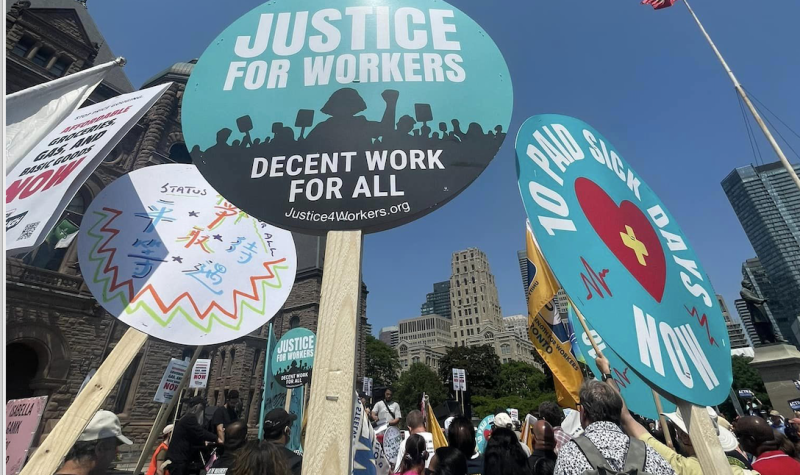A living wage report released this week shows that the minimum wage in Nova Scotia is below where it should be.
Living wages in Nova Scotia 2023 was released by the Canadian Centre for Policy Alternatives Nova Scotia on Sept. 7 and provides a look at what living wage is needed in order to meet basic needs in different regions in the province.
Minimum wage in Nova Scotia is set to increase to $15.00 as of Oct. 1, which Suzanne MacNeil from Justice for Workers Nova Scotia says is a substantial gap between minimum wage and the reports calculated living wages.
For the example, it looks at the hourly rate at which a household of two full-time workers and two children aged two and seven is needed.
The living wage calculated for Halifax was $26.50, compared to Cape Breton which was $22.85, and the Annapolis Valley which was $25.40. This year’s year-over-year increase was 14 per cent, the highest jump since the living wage calculating started in 2015.
“It was a bit jarring to see how big of a jump the living wage calculations made this year from last year,” MacNeil says.
The report write, "The living wage provides evidence to support the call for a $20 minimum wage."
In order to calculate the living wages, a formula was used: income from employment plus income from government transfers minus EI and CPP premiums, federal and provincial taxes.
The calculation considers the rise in costs for things like food and housing.
“This report shows that affordability is an issue in every region,” MacNeil says.
The report also outlined the benefits for not only workers but the community in general if minimum wage was increased to a living wage.
“Not spend half your pay cheque on housing and being able to participate in the life of the community,” MacNeil says. “If people are juggling multiple jobs, then there's not really time for a whole lot else.”
Some benefits for employers offering better wages are less turnover and higher productivity.
“Right now, we see the negative impact of low wage work in a lot of our different systems— health care workers see it in our hospitals,” McNeil says. “And that translates into increased strain on the healthcare system.”
Recommendations in the report suggested employers and government to firstly pay a living wage, as well as create better working conditions and expand things like government income benefits.
The report cites that the higher the government transfers become the lower private wage is needed to cover costs.
“But employers certainly don't have to do the bare minimum, they can and should be doing much more,” MacNeil says.
Listen to the story below:


